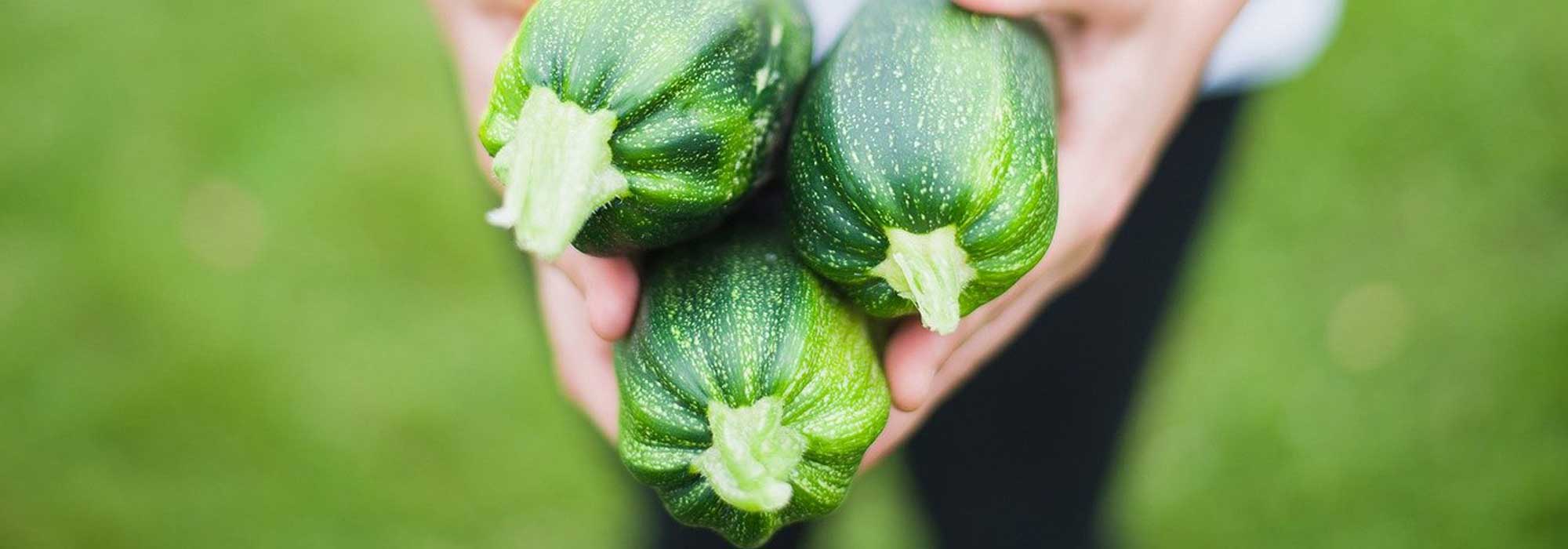
Growing courgettes in pots
Sowing, planting and care
Contents
Not everyone is lucky enough to have a garden large to grow a vegetable plot. However, a courtyard, terrace or balcony is perfectly suitable for growing vegetables in pots. Courgettes are among those crops that can perfectly be grown in pots. This vegetable, much loved, is also easy to grow provided it has a suitable container, substrate and exposure.
Sowing, planting and care… Here are all our tips to grow courgettes in pots easily.
→ Discover also our courgette seeds
How to grow courgettes in a pot?
Whether you carry out your own sowing or transplant young courgette plants bought from a garden centre, you should choose the right container, a rich enough potting compost and an ideal location.
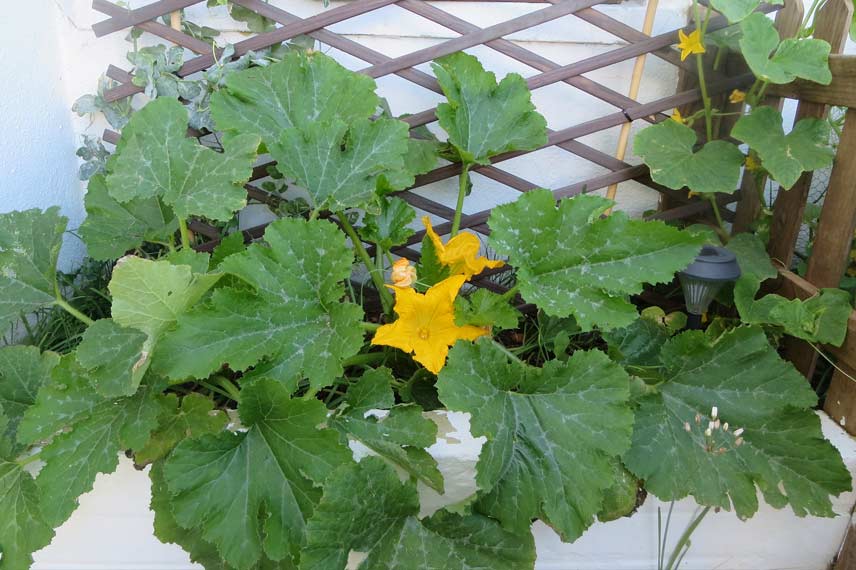
© Christian Haselbach – Flickr
Choose the right container
Relatively large vegetable plant, courgette needs to be grown in a pot as wide as it is deep. Preferably choose a pot 50 cm deep and 50 cm across.
Choice of material is also important. Porous and breathable, terracotta pots are generally best for growing vegetables. They are, however, much heavier than plastic containers. The latter are economical, but they warm up quickly and do not allow air and water to circulate at all. As another alternative, geotextile pots are lightweight and porous.
Note: beware of total weight your balcony or terrace can support. Not all structures offer the same load-bearing capacity.
Provide the right growing medium
To thrive, your potted courgettes need a rich, well-draining growing medium.
- The bottom of the pot should therefore have a thick drainage layer (gravel or clay balls).
- Next choose a vegetable potting compost and enrich it with well-rotted manure or compost (1 L of potting compost = 1 L of organic matter).
This growing medium thus supplies nutrients needed for development and productivity of your potted courgettes, while providing good water retention.
Sowing and planting courgettes in pots: where and when?
Potted courgettes need placing in a sunny but not scorching position. A partially shaded aspect is preferable to protect young plants from heat in southern parts of mainland France.
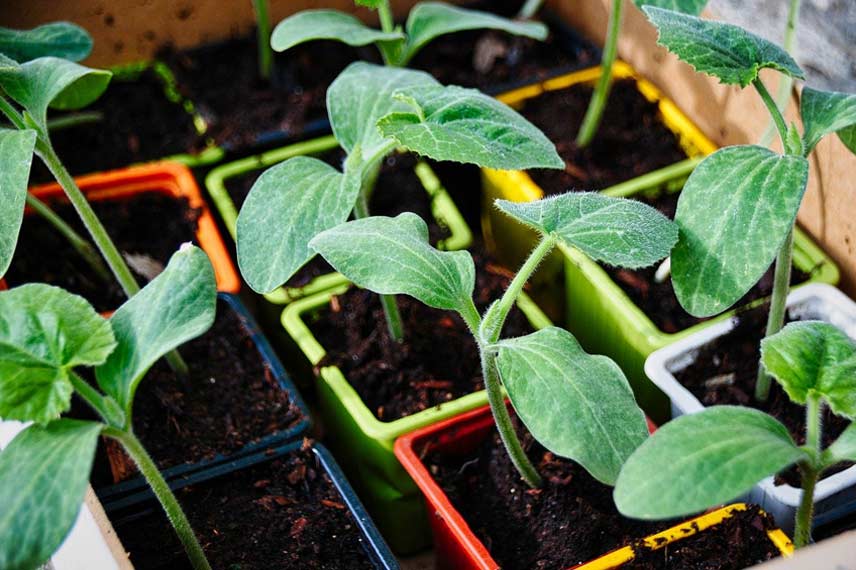
Sowing courgette in pot
For an early harvest, sowing of courgette in container takes place in mid-April and must be done in warmth to favour germination. Keep sowings indoors near a heat source and in the light.
If you must sow courgettes outdoors, wait until mid-May.
- Sow one seed per small individual bucket, or several seeds directly in pot.
- Use a substrate composed of sowing potting compost.
- Keep substrate moist until seeds have emerged using a mister.
- If sowing directly in pot, thin out young plants when 10 cm tall to retain only one vigorous plant.
Planting courgette in pot
Young plants of courgette in bucket are transplanted into pot from month May and up to July.
- Fill pot with a layer of drainage, potting compost and manure or compost;
- Dig a hole in this substrate corresponding to volume of rootball;
- Place rootball in hole and cover with substrate;
- Firm down and water;
- Water regularly at base to keep substrate always moist.
Note: for a trailing variety, consider installing a trellis to allow it to climb.
Discover other Courgette seeds
View all →Available in 1 sizes
Available in 0 sizes
Available in 1 sizes
Available in 1 sizes
Available in 1 sizes
Available in 1 sizes
Available in 1 sizes
Available in 1 sizes
Available in 1 sizes
Available in 1 sizes
Courgette varieties suitable for container growing
Be aware that absolutely all courgette varieties can be grown in pots.
Vining types, as their name suggests, have a strong tendency to spread, sometimes over 1 m. You therefore need enough space, or plan a trellis to train vining courgettes up. As they lack tendrils, they will need to be tied in as they develop.
You can also opt for non-vining courgette varieties, well suited to container growing.
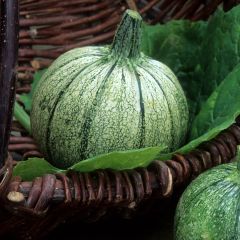
Courgette Nice à fruit rond - Ferme de Sainte Marthe Seeds
- Flowering time June to August
- Height at maturity 50 cm
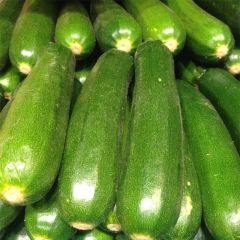
Zucchini Diamant F1 - Cucurbita pepo
- Flowering time August, September
- Height at maturity 50 cm
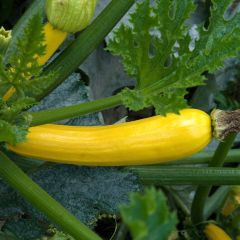
Zucchini Gold Rush F1 - Cucurbita pepo
- Flowering time May to July
- Height at maturity 50 cm
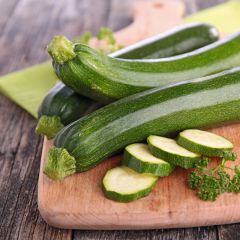
Zucchini Firenze - Cucurbita pepo
- Flowering time June to August
- Height at maturity 45 cm
Read also
Sowing of squashes and courgettesCaring for courgettes in pots
Growing courgette, whether in a pot or in open ground, has the great advantage of being very easy to manage. This vegetable is one of the species favoured by novice gardeners. A courgette grown in a pot also has the advantage of showing reduced growth compared with open ground, which makes it easier to control. That said, courgette needs a few good practices to persist and produce abundant fruits.
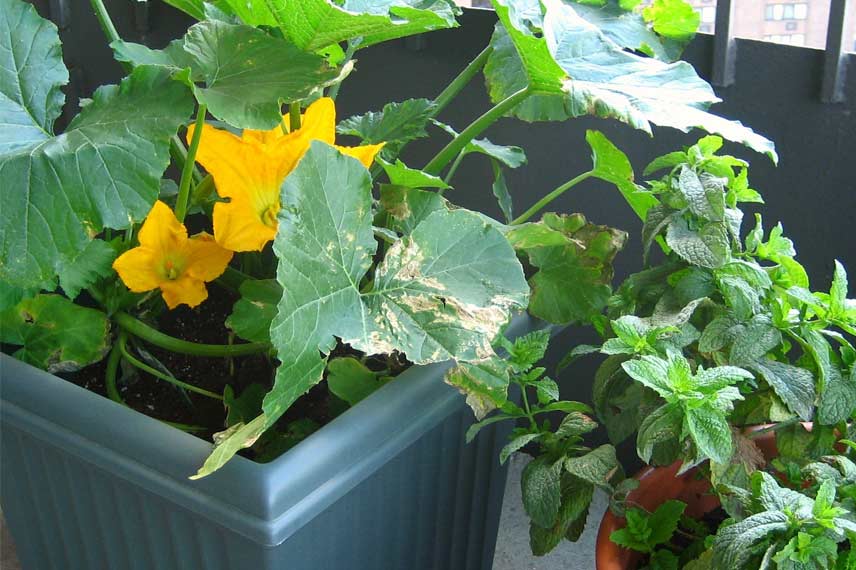
© Stacy Spensley – Flickr
Watering courgette young plants in pots
Courgette is a summer vegetable that needs cool conditions.
- Water your courgette young plants in pots when substrate is dry to a depth of 1 cm;
- Preferably water in evening or morning to limit evaporation;
- To help soil absorb more water, prefer watering in two passes;
- Adjust water quantity according to container capacity. Allow on average between 3 and 5 l per watering.
Note: if lower leaves of your courgettes appear wilted, your young plants are almost certainly thirsty.
Always use a watering can for courgettes in pots, to wet only the base of the young plant. This precaution will reduce risk of development of fungal diseases (such as mildew) caused by wet foliage.
Tip: prepare your watering can a few hours before watering so water reaches ambient temperature. Likewise, always favour rainwater for watering your vegetables. If not, leave tap water standing for at least 24 hours before use.
To reduce water needs of your courgettes in pots, do not hesitate to mulch them at the base. This practice insulates substrate and roots, which limits temperature rise, all the more rapid in a container. Moreover, mulch limits water evaporation.
Warning: always remember to empty saucer placed beneath your courgette pots to avoid excess humidity caused by stagnant water.
Fertilising courgette in pots
As mentioned above, fertilising is done when preparing the planting pot for your courgettes. Compost or well-rotted manure is then added to potting soil.
But it is also possible to add a little compost, nettle manure or comfrey to the watering water for your courgettes in pots, to feed them regularly. Or use a special fertiliser for vegetables grown in pots.
Pruning of courgette young plants in pots
Courgette in pot must be pruned as it grows to limit its development. For this, remove mature leaves which are very large and overhang the pot.
Diseases and pests of potted courgettes
Growing your young courgette plants in pots on a terrace or balcony has the great advantage of protecting them from slugs and snails. Indeed, gastropods are very fond of their young leaves. However, risk of attack by red spider mites (mites) is greater here, especially in hot, dry conditions. Spray foliage if infestation is severe.
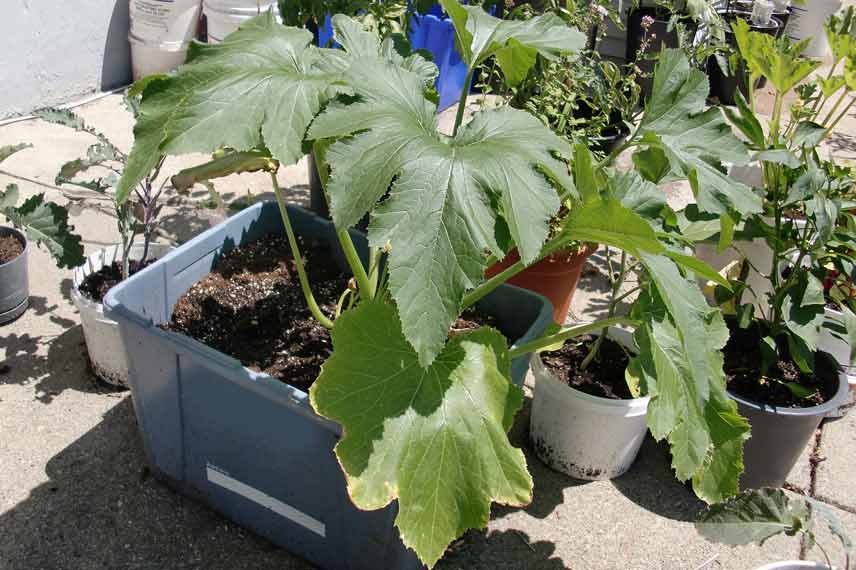
On the disease front, courgette is susceptible to powdery mildew. If this occurs, promptly cut off affected leaves. Rest assured, however, powdery mildew usually appears towards end of season and does not prevent your courgettes from producing perfectly edible fruit.
→ Also read: Diseases and pests of squashes and courgettes
- Subscribe!
- Contents
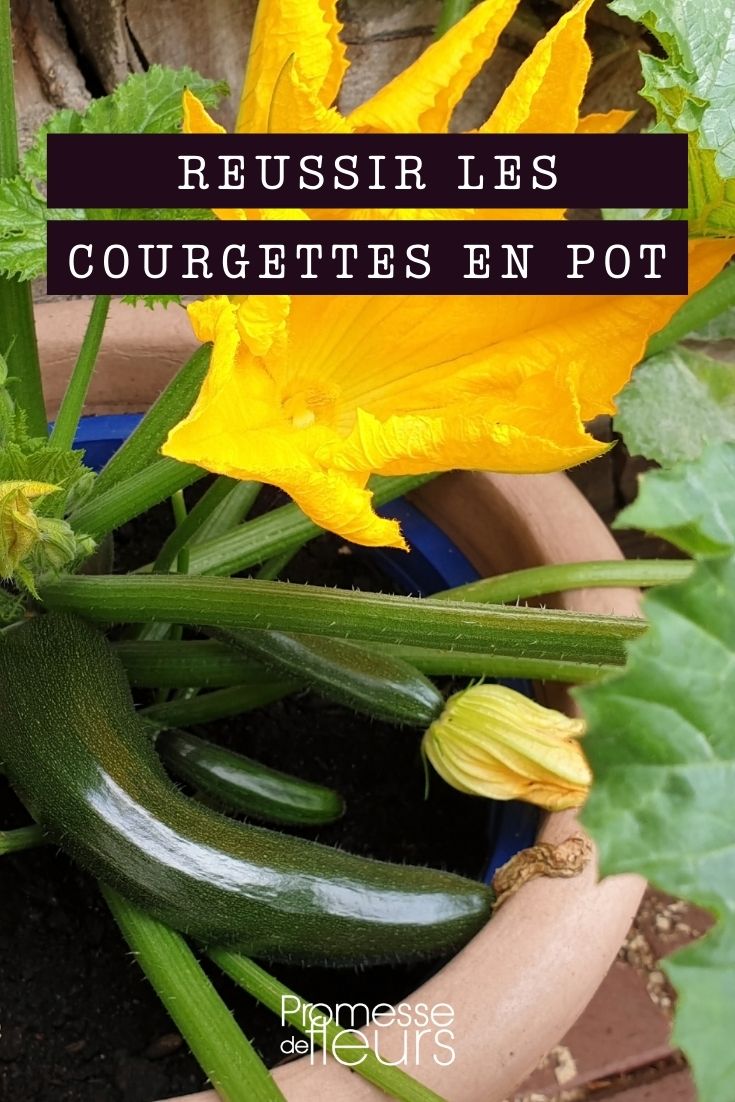






























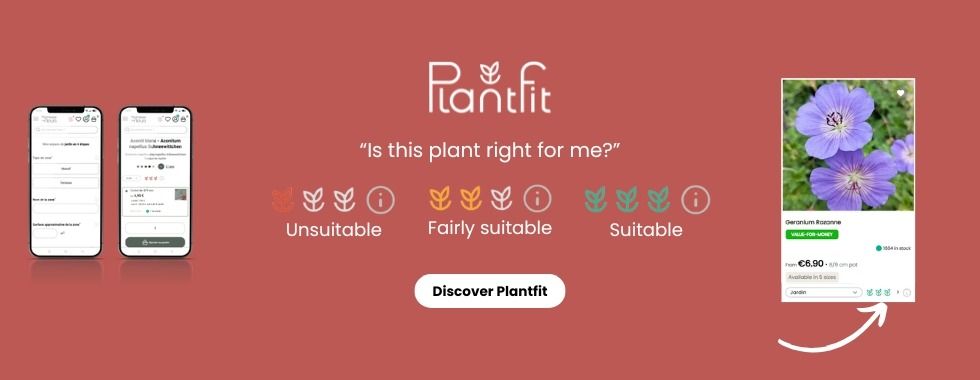
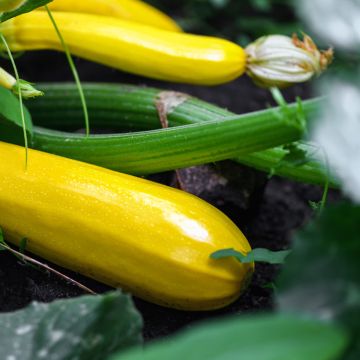
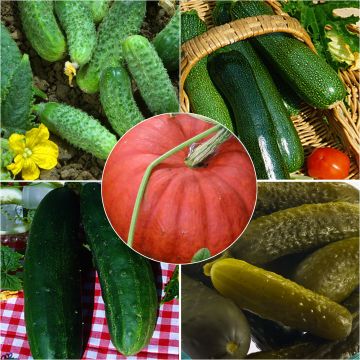
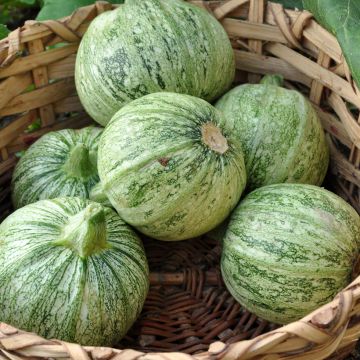

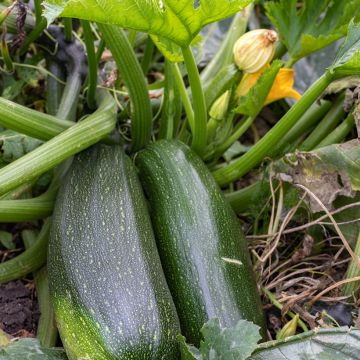
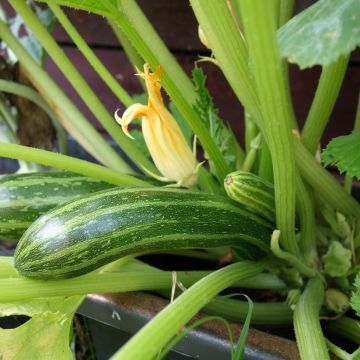
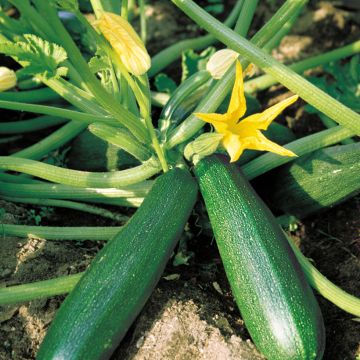
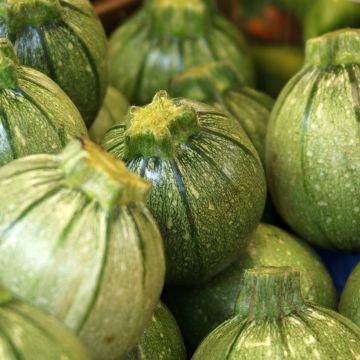
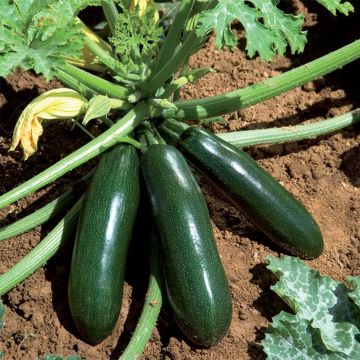
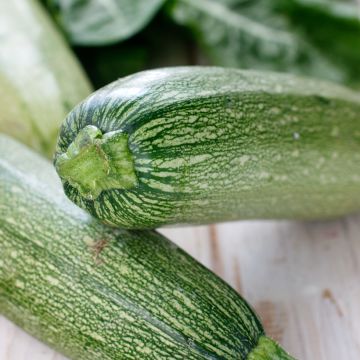
Comments